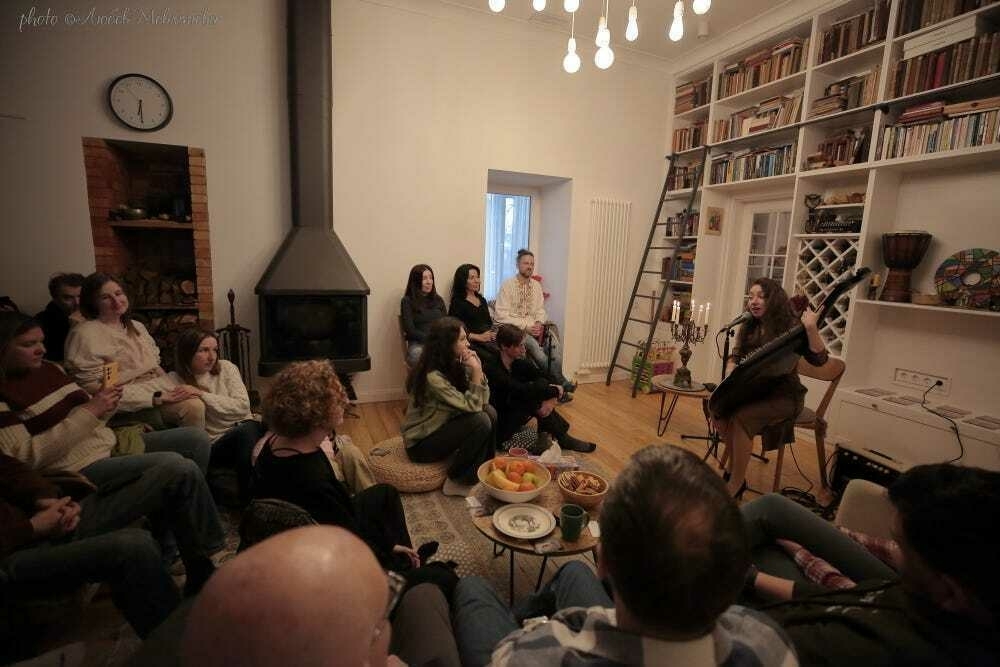Editor’s note: Everything seems to be breaking down. From the attacks in Kyiv over the last 48 hours – some of the largest of the last few years – to the negotiating process… things look dire.
Still, we’re determined to teach, inspire and elevate. That’s why we’re adding today’s issue, which speaks to how Ukrainians kept their culture alive in the dark, secret places of the Soviet Union.
Support our approach by upgrading today!
A video Veronika took at the Kvartyrnyk, when both the singer and the audience were singing.
I had mixed feelings right before I stepped into the apartment where the concert would take place.
I had no idea what modern apartment concerts were like.
My only associations were a small, average apartment in Ukraine, a musician (usually a guitarist), and a group of strangers.
“It would be cool to attend once,” I thought, not sure if it would become my preferred way of spending free time.
However, I wasn’t expecting to experience what I have actually felt in the end.
Apartment concerts, ‘kvartyrnyks’ in Ukrainian, played a significant role in preserving Ukrainian culture during times of its greatest repression. With these secret gatherings, Ukrainians could read poetry, sing songs, and more freely discuss the criminal Soviet regime at a time when doing so could lead to punishment.
Some musicians and poets were even jailed, such as Vasyl Stus, who became a political prisoner twice, in 1972 and 1980, for his works condemning the government. Other figures, like Ukrainian jazz-rock pioneer Mykhailo Manulyak, were suppressed and forced to stop their public activity.
The existence of kvartyrnyks demonstrates how Ukrainian culture persists despite constant adversity – whether under authoritarianism or in the face of open war against it.

After the paywall:
How and why the apartment concerts occurred;
Peculiarities of this format and how it is held in modern conditions;
Why do people still choose to do Kvartyrnyks even without contemporary political pressure.

